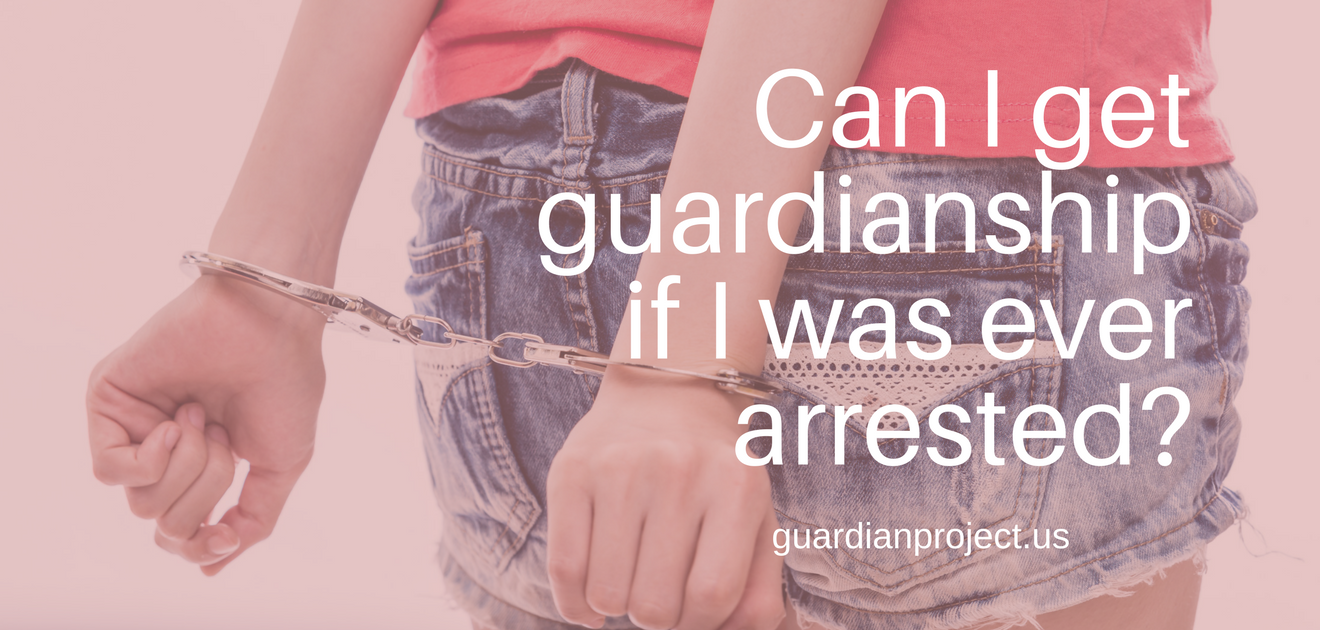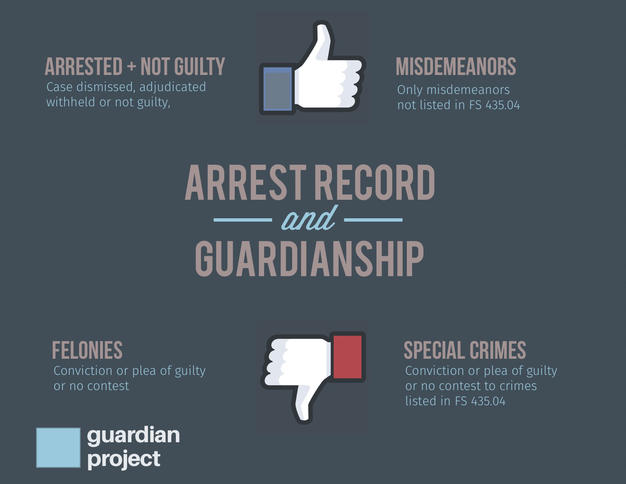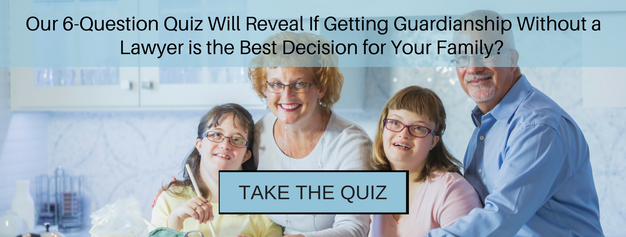How an arrest record or criminal conviction effects a parent from becoming their special needs child’s guardian advocate in Florida.
Here’s an interesting fact: if every American with an arrest record held hands, there would be enough people to circle the earth…THREE TIMES!
Since one-in-three Americans will have been arrested once by the age of 23, chances are good that you may have had a run-in with the law.
If your child with a developmental disability is turning 18, and you plan to apply to a Florida court for guardianship, you may be wondering: Will my past indiscretions come back to haunt me?
If you’ve reviewed any of the Florida guardian advocate forms (the guardianship process for parents with children who have developmental disabilities), you may have noticed that questions 14 and 15 in the Application ask you to disclose whether you have been convicted, or arrested, for any felony, and any other crime.
For many of you (four-in-ten to be exact), the thought of having to explain your youthful indiscretions to a judge may give you some pause. But the reality is, most of you have nothing to worry about.
What Crimes Prohibit You From Becoming a Guardian Advocate in Florida?
Here’s the good news. Merely getting arrested for a crime does not prohibit you from serving as guardian advocate in Florida. A conviction, guilty or no contest plea is required.
Further, even if you have been convicted of a crime, you still may be able to serve as your child’s guardian advocate. In fact, the most common infractions, like DUI, criminal mischief, possession, under age drinking, criminal trespass, do not prevent you from becoming a guardian advocate.
But here’s the bad news: in Florida, there are some crimes that outright prohibit you from being appointed as guardian. These include:
- The commission of a felony (including convictions, guilty and no contest pleas)
- Having been judicially determined of abuse or neglect of a child
- Having been the subject of a confirmed report of abuse, neglect, or exploitation that has been uncontested or upheld
- Having been convicted, plead guilty or no contest this list of serious crimes (whether felony or misdemeanor), that include generally:
- Sex crimes, solicitation, prostitution
- Violent crimes, including felony assault
- Assault on a minor (misdemeanor or felony)
- Vehicular homicide
- Burglary, kidnapping or false imprisonment
- Crimes of abuse, neglect or exploitation
You Must Disclose Arrests and Convictions Accurately, or Risk Perjury Prosecution
Even if you were arrested or convicted of a crime that would not prohibit you from becoming a guardian advocate, you must disclose them all in your application.
Remember, you will most likely have to pass a Level 2 background check. Just about any kind of criminal infraction will come up.
Since you will be submitting your application under oath, at the very least the court will reject your application for omitting a material detail. In the worst case scenario, you could be prosecuted for perjury.
There is a good chance that you will need to address the circumstances and outcome of these incidents with the court. So if you have an arrest record, it’s in your best instance to get a certificate of disposition from the court that handled the incident prior to filing your guardianship application.
Is Florida’s Compulsory Prohibition on “Felony” Convictions Unfair to Parents?
The risk of abuse is tremendous when a court grants guardianship. You could see why the Florida legislature would want to outright prohibit convicted felons from becoming a guardian advocate. It eliminates the significant burden of determining whether an applicant with a checkered past is a suitable candidate.
However, Florida’s inflexible policy can create unfortunate outcomes.
The correlation between crime and addiction is no secret. Over 80% of offenders abuse drugs or alcohol, and approximately 60% of individuals arrested for most types of crimes test positive for illegal drugs at arrest.
What happens when an addict commits a felony to support their addiction, and later turns their life around?
If that person is an otherwise upstanding parent of a special needs child, is it really in the best interest of that child to prohibit a parent from serving as guardian advocate? Does that not put an even greater burden on taxpayers, who may have to pay for a court appointed guardian, when an otherwise suitable one is available for free?
The law, as currently drafted, does not account for a person’s ability to rehabilitate themselves. This is sad.
At the very least, judges should have the discretion to weigh all the circumstances and make a decision that’s in the best interest of the child, even if the circumstances under which these exceptions are made are rare.
Other States Have a More Reasonable Approach to Felony Convictions
Other states have taken a more progressive approach to this issue.
In Oklahoma, a parent with a felony conviction is not necessarily barred from from serving as their disabled child’s guardian. Instead, the court must make further inquiry into the nature and circumstances of the criminal conviction. If the court finds that applicant can be faithful to their duties and not neglectful of their responsibilities as guardian, and it is in the best interest of the child, the court can approve the application.
According to Oklahoma estate attorney Terrell Monks, “it will be difficult to convince a judge to appoint you, but it is legally possible.”
California has an even more sensible approach to guardian applicants with felony convictions. Like Oklahoma, California weighs the past convictions and makes a decision about the best interest of the child. But it gives greater weight to certain kinds of convictions.
For example, sex crimes, domestic violence or exploitation crimes will be viewed more negatively than a simple drug possession charge.
California judges have the authority to require drug or alcohol tests, or make an order that requires the applicant to not use drugs or alcohol. However, under California law, the judge cannot deny a guardianship application based only on the results of a positive drug/alcohol test. That would be one factor of many when deciding whether the guardianship would be in the child’s best interest.
Conclusion
For those of you who did naughty things during their misspent youth — and in the interest of full disclosure, I’d be on this list — most of your past indiscretions will not prevent you from becoming a guardian advocate. But be prepared to give a good explanation to the judge about how you’ve reformed your life, perhaps with documented evidence from third parties.
However, if you have a felony conviction and turned your life around, Florida is not the place for you if you hope to serve as your child’s guardian. If an alternate guardian advocate is not an option for you, consider relocating to a state with a more flexible approach.


